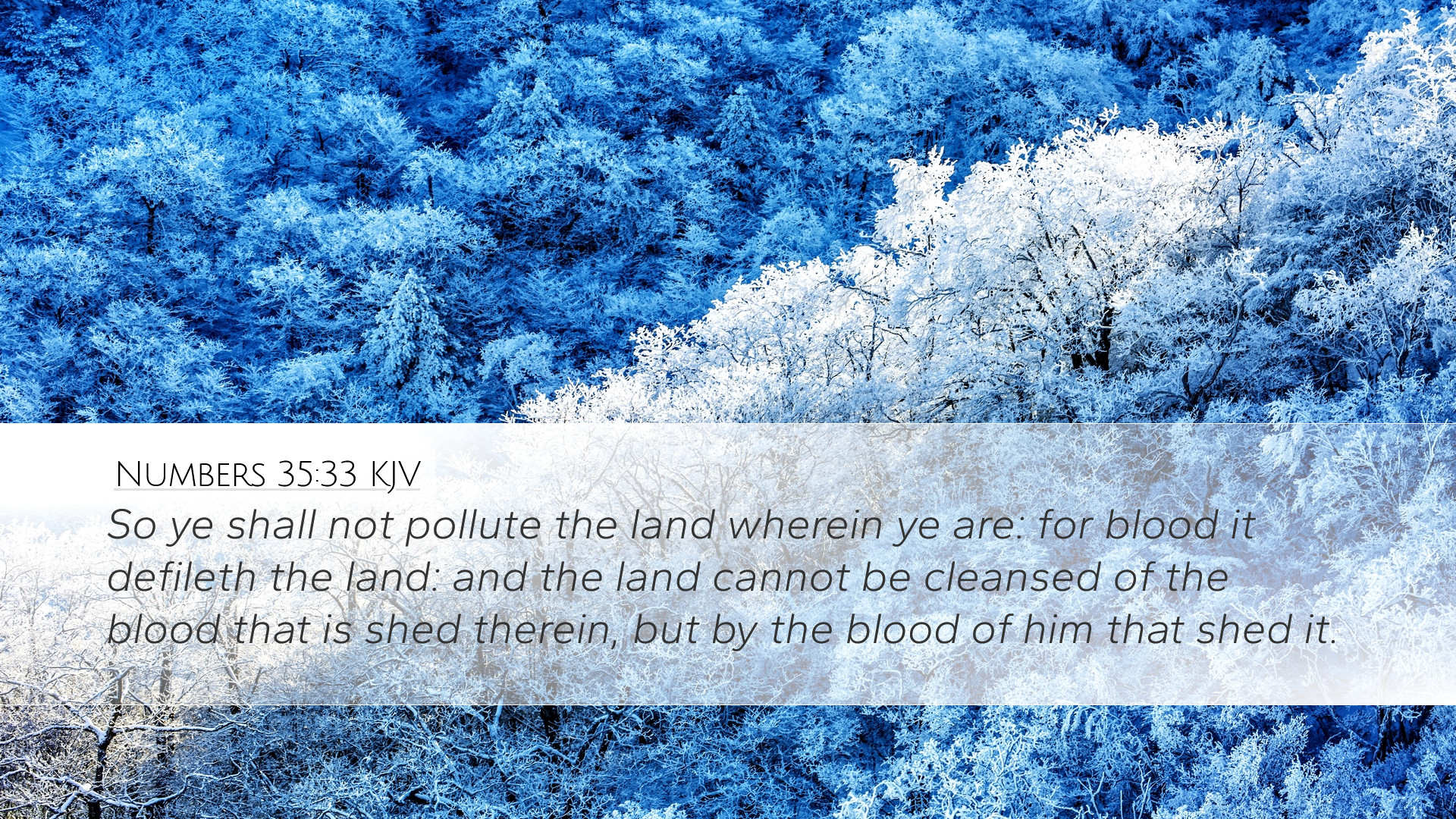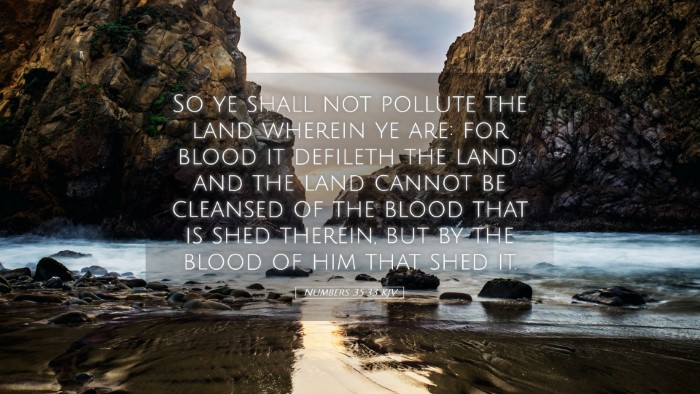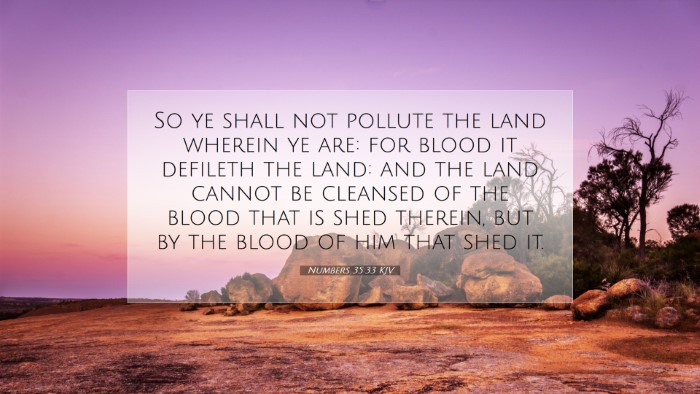Commentary on Numbers 35:33
Verse: "So ye shall not pollute the land wherein ye are: for blood it defileth the land: and the land cannot be cleansed of the blood that is shed therein, but by the blood of him that shed it."
Introduction
The verse from Numbers 35:33 provides critical insight into the gravity of bloodshed's impact on the land, emphasizing the divine principle of justice and retribution. In this commentary, we draw insights from the writings of Matthew Henry, Albert Barnes, and Adam Clarke to explore its theological significances, implications for society, and the nature of justice as revealed in Scripture.
Context and Background
The Book of Numbers presents regulations for the Israelites as they journeyed towards the Promised Land, highlighting their social, spiritual, and moral responsibilities. Numbers 35 discusses cities of refuge and the laws surrounding manslaughter and murder, underscoring the seriousness with which God views the sanctity of life and the necessity of justice.
Theological Insights
The Sanctity of Life
According to Matthew Henry, this verse denotes the sacredness of human life in God’s eyes. The mention of “blood” speaks to the life force within a person; to spill blood is to violate God’s creation. Life is valuable, and this verse serves as a warning against murder, asserting that such an act brings a curse upon the land.
Defilement of the Land
Albert Barnes elaborates on the idea that the shedding of innocent blood pollutes the land itself. The land is a symbol of God's promises and blessings, and such moral transgressions disrupt the covenant relationship between God and His people. The blood shed creates a spiritual and moral stain that requires rectification.
The Necessity of Atonement
Adam Clarke emphasizes the importance of atonement in this context. The verse suggests that the only way to cleanse the land is through the blood of the murderer, indicating that divine justice must be satisfied. This foreshadows New Testament themes regarding Christ's atoning sacrifice, whereby His blood cleanses not just individuals but also restores creation.
Implications for Society
Legal and Moral Responsibility
The directives within this chapter reveal God’s intention for society to uphold justice. The principle that “blood defileth the land” reminds communities of the need for laws that reflect divine justice. It calls on leaders and citizens alike to maintain moral integrity and seek justice appropriately.
Communal Responsibility
Henry points out that this responsibility is communal as well as individual. The defilement affects not just the murderer but the whole community. Thus, it calls for collective action in preventing violence and maintaining peace through just systems and accountability.
Application to Modern Believers
Understanding Sin and Consequence
For contemporary believers, this verse serves as a stark reminder of the seriousness of sin and its societal implications. It challenges individuals and churches to foster environments where life is valued and protected, reflecting God's character.
The Role of the Church
The church plays a pivotal role in teaching about justice, mercy, and the sanctity of life. Barnes suggests that the church should actively engage in issues surrounding violence, advocating for justice systems that reflect God’s righteous standards, emphasizing restoration rather than mere punishment.
Restoration Through Christ
The ultimate hope for believers is found in the redemptive work of Jesus Christ, whose blood speaks a better word than the blood of Abel (Hebrews 12:24). Clarke reminds us that while God demands justice, He also provides a means for restoration through grace, emphasizing the transformative power of the gospel in both individual lives and communities.
Conclusion
Numbers 35:33 serves as a profound reminder of the sanctity of life and the gravity of justice. The insights from Matthew Henry, Albert Barnes, and Adam Clarke collectively urge us to consider the implications of our actions within our communities. As modern believers, we are called not only to uphold justice but to seek restoration and reflect the grace and righteousness of God in every sphere of our lives.


